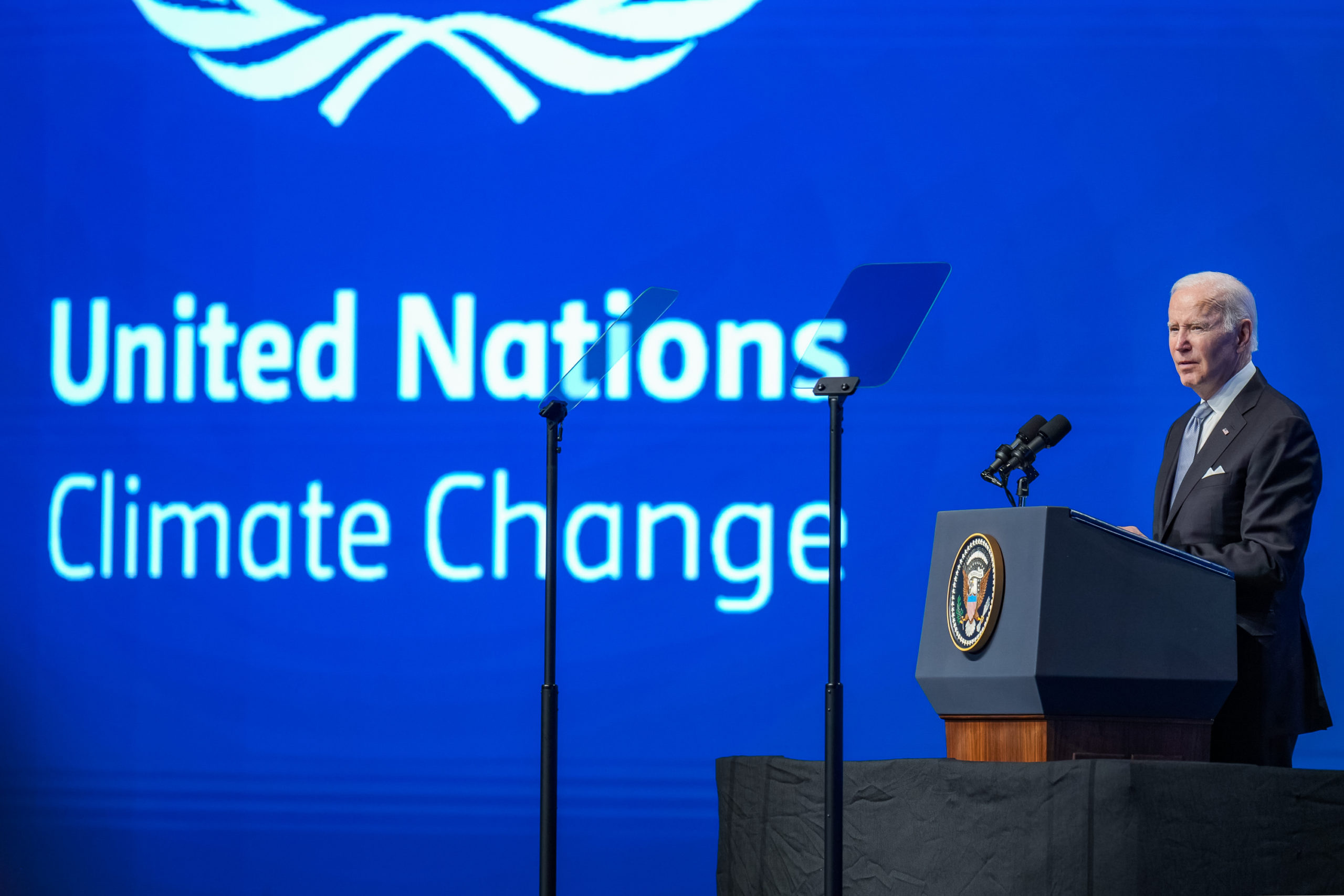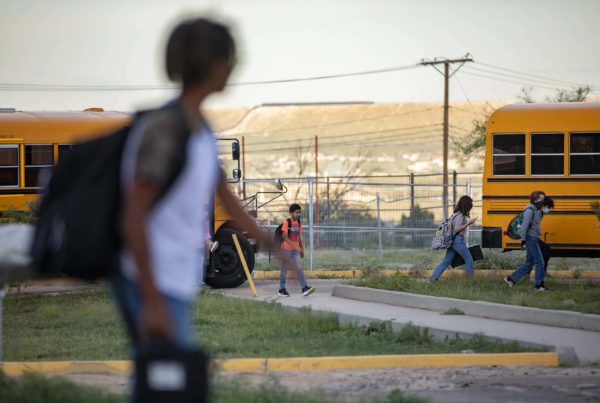Right now, world leaders are gathered in Egypt for the 2022 United Nations Climate Change Summit – also known as COP27. Delegates are expected to release an agreement outlining actions to tackle climate change, but some fear the target of minimizing a rise in global temperatures is slipping away.
In his speech at the conference President Joe Biden called for more aggressive climate action, and framed the US as a leader in reducing carbon emissions, but stopped short of mentioning climate reparations – which developing nations say is needed to help them mitigate the worst effects of climate change.
Matt Smith, lead oil analyst for the Americas at Keplr, spoke with the Standard about some of the key themes at this year’s conference. Listen to the story above or read the transcript below.
This transcript has been edited lightly for clarity:
Texas Standard: Well, tell us what you know about the COP27 climate change meeting going on right now. A major theme or through line this year?
Matt Smith: Well, first off, so COP27 stands for Conference of the Parties. That’s the “COP” bit. And then it’s an annual event and this is the 27th one. And so hence we get “COP27.” But it’s essentially where the United Nations get together to focus and try and agree on a collective action to address climate change here. You know, obviously, a lot of people chipping in about this. We had President Biden speaking last week. He was urging for ambitions to be stepped up here because we’re just not really getting the level of commitment that we need. What he said we had to try and avoid was a “climate hell,” that’s a term that was said by the UN secretary general early last week. But in terms of just the US and their efforts, you know, Biden highlighted the Inflation Reduction Act that legislation is targeting… Well it’s got $370 billion being thrown at climate and clean energy policies in the US effort to try and reduce emissions by 40% there. But he also announced some new initiatives, as well, relating to targeting US methane reduction efforts. And so the US is kind of pushing its own agenda and highlighting that it’s trying to do as much as possible.
Well, now, as I understand it, some less developed countries are pointing a finger at the United States, Europe and others saying, “wait a minute, we’re going to suffer the brunt of the impact of this caused by more developed countries.” I mean, this has been something that seems to have been a theme this year.
It’s always a theme, right? Because developed nations are the ones that are using the most electricity. And then those countries and regions that aren’t using that much, you know, feel like they’re getting blamed for using coal, for using fossil fuels, etc. And kind of on that front, you know, you do have somewhere like India, who’s actually pushing to phase down all fossil fuels. And the focus has been just on coal, but they’re pushing for the collective effort against those fossil fuels even closer to home. You know, you have Mexico that has agreed to a tough new target looking to reduce emissions by 35% by 2030. And then you have the Middle East, these oil and gas producers. You have the UAE, United Arab Emirates, and also Saudi Arabia targeting net zero greenhouse emissions by 2050. In terms of “net zero,” it’s probably worth clarifying that it’s essentially a ledger. You know, so you have a balance sheet where greenhouse gas emissions produced by a country are offset by taking emissions out of the atmosphere as well, whether that be planting new forests or via carbon capture technology, etc., but the longer term goal, the overarching theme here is that we simply have to reduce that balance sheet. We need to see much lower emissions in the first place, which therefore would require less and less effort to offset that.
Yeah. And something I should point out, when we’re talking about a less developed versus more highly-developed countries, we’re really talking about industrialization here and scales of economy. Now, I wonder how much the Russian invasion of Ukraine has actually ratcheted up the focus on renewable energy and emissions reduction? Or has that been a setback? Of course, the concern about shortages of fuel for the winter.
You’re right, it has been a setback. You know, so Europe has been very much focused on renewables in the last decade or so. And even though, in the near term, they will look to rely on fossil fuel imports to offset the loss of Russian supply, ultimately they will focus on more renewables for the longer term – simply so they’re less vulnerable to supply shocks and less reliant on others, such as Russia. But in terms of those emissions, exactly right with your point there. This has somewhat been relegated, you know, it’s been set back. It’s a much lower priority as Europe focuses on keeping the lights and heat on this winter. So the invasion of Ukraine by Russia has drastically shifted the focus to energy security, at least for now.
















